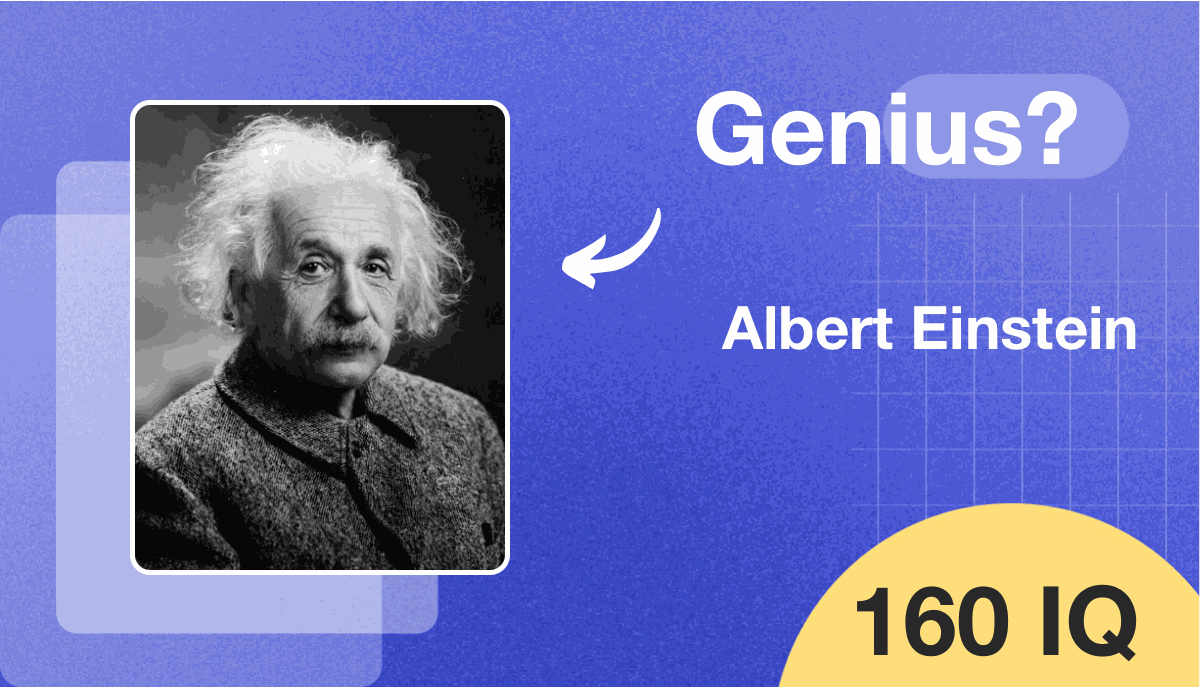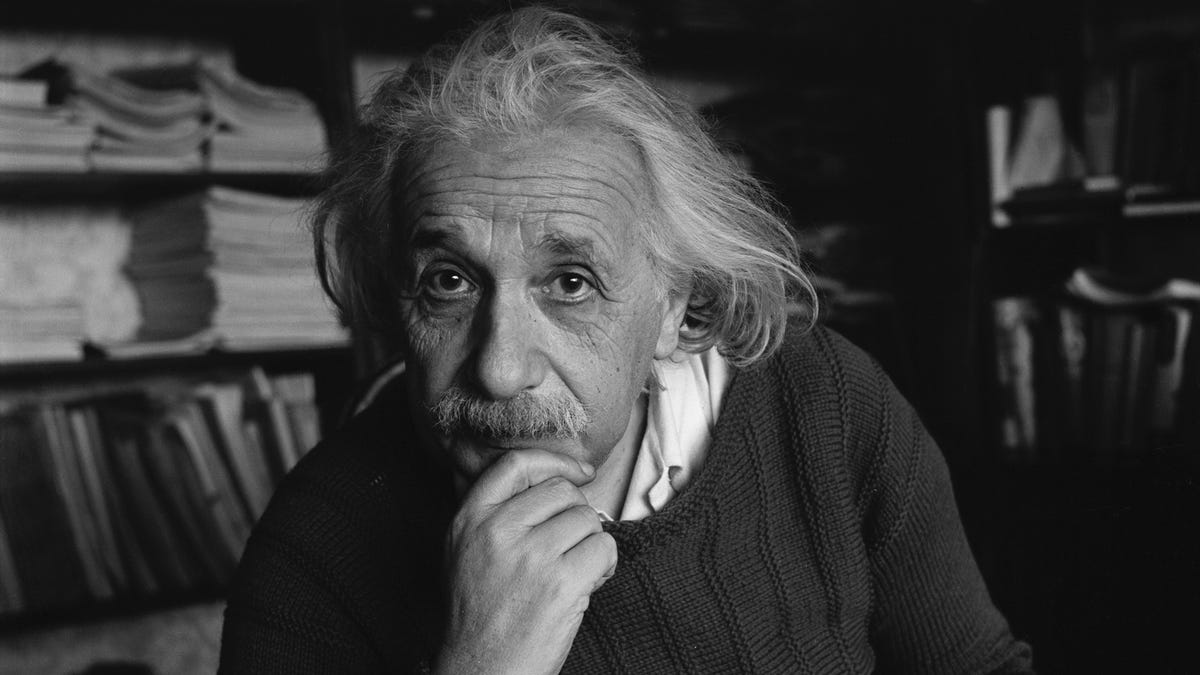The name Albert Einstein is synonymous with brilliance and intellect. His groundbreaking theories have shaped modern physics, and his IQ has long been a topic of fascination for scientists and the general public alike. But what exactly was Einstein's IQ, and how did it contribute to his unparalleled achievements? This article delves deep into the enigma of Einstein's intelligence, exploring not only the numerical value of his IQ but also the broader implications of his cognitive abilities.
Albert Einstein's contributions to science, particularly the theory of relativity, have cemented his legacy as one of history's greatest minds. However, the intrigue surrounding his intelligence extends beyond his scientific achievements. Many people are curious about the specific metrics that define his intellectual prowess, making the discussion of his IQ both relevant and compelling.
Understanding Einstein's IQ requires examining not just the number itself but also the context in which it existed. This article will explore the historical and scientific dimensions of Einstein's intelligence, offering insights into how his cognitive abilities influenced his groundbreaking work and why his IQ remains a subject of enduring interest.
Read also:Who Is Steffy Married To In Real Life Unveiling The Truth Behind The Fictional Character
Table of Contents
- Biography of Albert Einstein
- Defining IQ: What It Really Means
- Albert Einstein's IQ: The Numbers
- Historical Context of IQ Testing
- Einstein's Scientific Contributions
- Cognitive Traits of a Genius
- Impact on Modern Science
- Common Misconceptions About Einstein's IQ
- Measuring Genius: Beyond IQ
- Conclusion: The Legacy of Einstein's Intelligence
Biography of Albert Einstein
Early Life and Education
Albert Einstein was born on March 14, 1879, in Ulm, Germany. From an early age, he displayed a keen interest in mathematics and physics. Despite common myths suggesting he struggled in school, Einstein was, in fact, an exceptional student who excelled in his studies.
Below is a summary of Einstein's personal data:
| Full Name | Albert Einstein |
|---|---|
| Date of Birth | March 14, 1879 |
| Place of Birth | Ulm, Germany |
| Profession | Theoretical Physicist |
| Major Achievements | Theory of Relativity, Nobel Prize in Physics (1921) |
Scientific Career
Einstein's career as a theoretical physicist began with his groundbreaking work on the special theory of relativity in 1905. His later development of the general theory of relativity further solidified his status as a scientific luminary. Throughout his life, Einstein's intellectual curiosity drove him to explore the mysteries of the universe.
Defining IQ: What It Really Means
IQ, or Intelligence Quotient, is a measure of cognitive abilities. It assesses a range of skills, including problem-solving, logical reasoning, and memory. While IQ tests are widely used, they represent only one aspect of intelligence.
Types of Intelligence
- Logical-Mathematical Intelligence: The ability to reason logically and solve mathematical problems.
- Spatial Intelligence: The capacity to visualize and manipulate objects in space.
- Verbal-Linguistic Intelligence: The skill of using language effectively for communication.
Albert Einstein's IQ: The Numbers
Although the exact value of Einstein's IQ is debated, it is widely believed to have been around 160. This score places him in the top percentile of intellectual capability. However, it is essential to recognize that IQ is not the sole determinant of genius.
Factors Influencing IQ Scores
- Environmental factors such as education and upbringing.
- Personality traits and emotional intelligence.
- Access to resources and opportunities for intellectual growth.
Historical Context of IQ Testing
The concept of IQ testing emerged in the early 20th century. Developed by psychologists like Alfred Binet, these tests aimed to identify children who needed additional educational support. Over time, IQ tests evolved to measure a broader range of cognitive abilities.
Read also:Bryshere Gray And Diddy A Journey Through Music Collaboration And Influence
Evolution of IQ Testing
Modern IQ tests incorporate various components to assess different facets of intelligence. These tests are continually refined to ensure accuracy and fairness across diverse populations.
Einstein's Scientific Contributions
Key Theories and Discoveries
Einstein's most famous contribution to science is the theory of relativity, which fundamentally changed our understanding of space and time. His work on the photoelectric effect also earned him the Nobel Prize in Physics in 1921.
Impact on Modern Physics
Einstein's theories laid the foundation for many modern scientific advancements, including the development of quantum mechanics and the understanding of black holes.
Cognitive Traits of a Genius
Geniuses like Einstein often possess unique cognitive traits that set them apart. These include exceptional pattern recognition, creative problem-solving, and an insatiable curiosity about the world.
Characteristics of Einstein's Mind
- Unparalleled ability to think abstractly.
- Strong visualization skills for complex concepts.
- Deep understanding of interconnectedness in nature.
Impact on Modern Science
Einstein's influence extends far beyond his lifetime. His theories continue to inspire new generations of scientists and researchers, driving innovation in fields as diverse as astrophysics and technology.
Applications in Technology
Modern technologies such as GPS systems rely on principles derived from Einstein's theory of relativity. His work has also paved the way for advancements in medical imaging and energy production.
Common Misconceptions About Einstein's IQ
Despite widespread fascination with Einstein's intelligence, several misconceptions persist. For instance, the belief that he failed math as a child is entirely false. Additionally, the exact numerical value of his IQ remains speculative, as no verified test results exist.
Separating Fact from Fiction
It is crucial to approach discussions about Einstein's IQ with a critical mindset. Relying on credible sources and scientific research helps dispel myths and deepen our understanding of his intellectual legacy.
Measuring Genius: Beyond IQ
While IQ provides a quantitative measure of intelligence, it cannot fully capture the essence of genius. Other factors, such as creativity, perseverance, and emotional intelligence, play vital roles in shaping exceptional minds like Einstein's.
Qualities of a True Genius
- Originality in thinking and problem-solving.
- Commitment to lifelong learning and intellectual growth.
- Ability to inspire and influence others through ideas and actions.
Conclusion: The Legacy of Einstein's Intelligence
In conclusion, Albert Einstein's IQ represents just one facet of his extraordinary intellect. His groundbreaking contributions to science and enduring influence on modern thought underscore the depth of his genius. As we continue to explore the mysteries of the universe, Einstein's legacy serves as a beacon of inspiration for future generations.
We invite you to share your thoughts and insights in the comments below. Additionally, explore other articles on our site to deepen your understanding of scientific and intellectual topics. Together, let's celebrate the brilliance that defines humanity's quest for knowledge.
References:
- Isaacson, Walter. "Einstein: His Life and Universe." Simon & Schuster, 2007.
- Gardner, Howard. "Frames of Mind: The Theory of Multiple Intelligences." Basic Books, 1983.
- NobelPrize.org. "Albert Einstein - Biographical." Nobel Prize, 2023.


